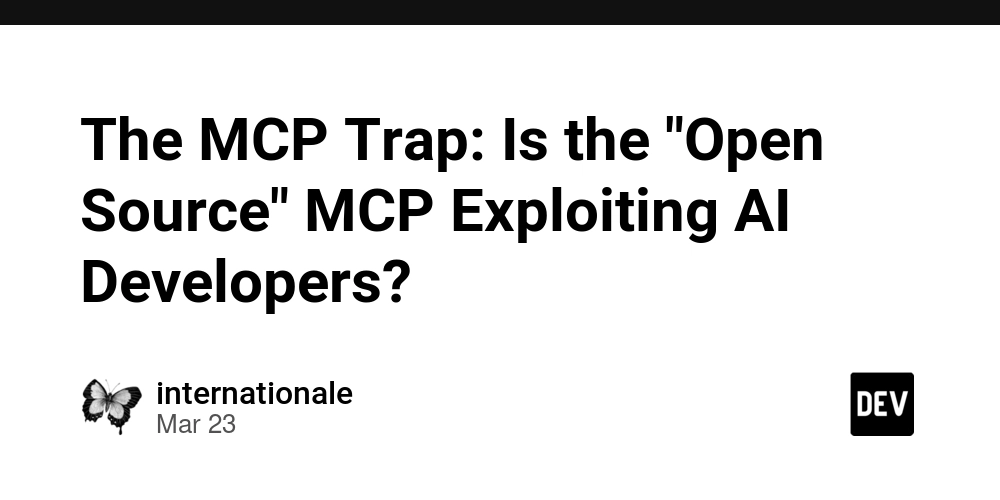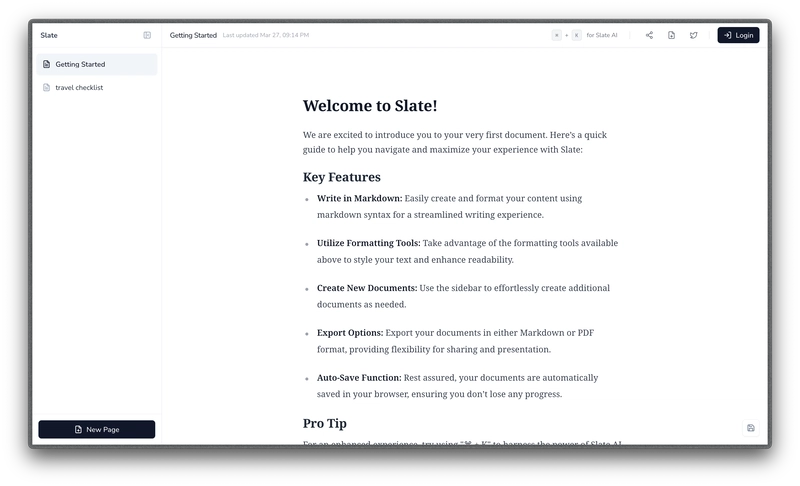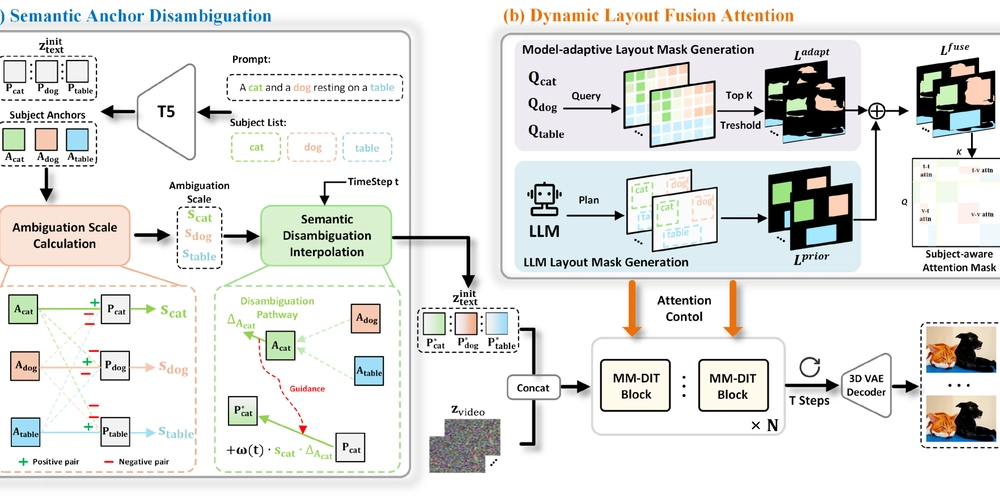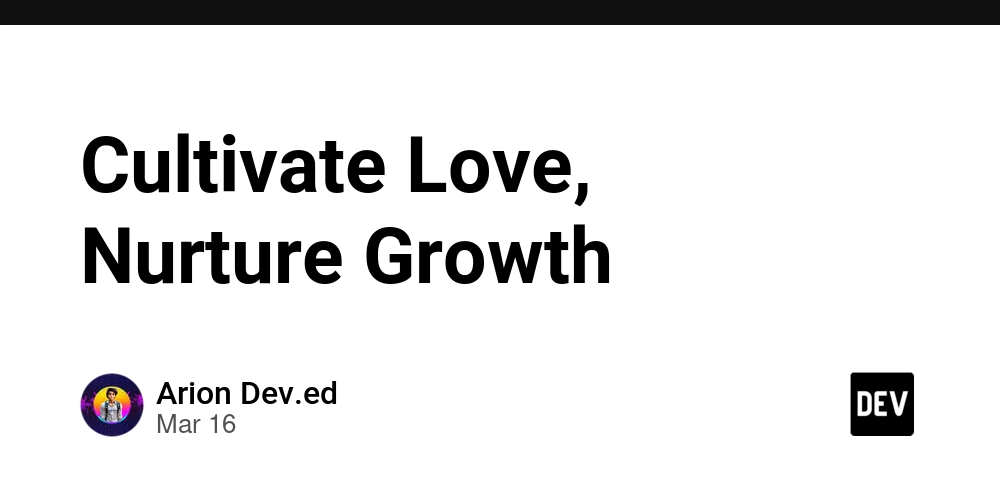The MCP Trap: Is the "Open Source" MCP Exploiting AI Developers?
Recently, I've been reflecting on how AI startups—particularly those developing powerful coding models—invite the developer community to build integrations under open-source licenses such as MIT, using frameworks like the Model Context Protocol (MCP). On the surface, this seems beneficial: the ecosystem expands rapidly, and developers feel involved. But digging deeper, is MCP truly empowering the community, or is it subtly exploiting developer enthusiasm? Consider this scenario: by late 2024, suppose you're Anthropic, with the most cost-effective programming model available. Yet your developer ecosystem significantly lags behind LangChain, which boasts over 500 integrations. You face two clear options: adopt an open-source standard like MCP to encourage community-driven growth, or imitate OpenAI's "App Store" approach, similar to Apple's famously successful marketplace. But here's the catch. Apple's App Store didn't succeed purely through distribution—it thrived because Apple streamlined developer experience, monetization, and publishing processes. OpenAI has attempted to replicate this, but hasn't yet perfected a frictionless ecosystem. With this context, turning to open-source community contributions via MCP becomes a natural yet politically correct strategy for advancing commercial interests. Yet many AI companies' "open-source" initiatives, including MCP, remain disappointingly superficial. These projects often merely wrap existing concepts without clearly defined structures—such as explicit SDK contracts or proper guidance on prompt engineering. Developers are left with unclear expectations, minimal support, and disproportionate responsibility. When companies maintain tight control over governance and strategic decisions, the theoretical freedom provided by open-source licenses loses practical significance. Ironically, Anthropic itself hasn't open-sourced its Claude Code CLI tool, citing vague "safety concerns." Most of us recognize this as purely business-driven, undermining their open-source narrative and signaling hypocrisy. Not all corporate-led open-source projects are problematic, of course. Projects like TensorFlow (Google), VSCode (Microsoft), and Rust (community-driven, commercially supported) exemplify genuinely beneficial partnerships. However, many lack similar long-term commitment, chasing immediate attention rather than sustainable development. Neglecting ongoing maintenance doesn't just destabilize ecosystems—it heightens security risks, particularly critical in a future where AI-driven agents increasingly influence sensitive tasks (would you trust your financial details to a poorly maintained AI agent?). For MCP and similar open-source initiatives to succeed sustainably, clear incentives are needed: Transparent Rewards: Explicitly provide meaningful rewards—financial backing, employment opportunities, or recognition—to contributors. Open Governance: Implement transparent, community-inclusive decision-making processes to avoid unilateral corporate control. Stable Funding: Establish reliable, long-term funding channels to ensure continuous maintenance and security. If AI companies persist in superficial "open-source" approaches without genuinely supporting developer communities, they risk long-term disillusionment. Eventually, the market will demand authenticity. Trust, transparency, and clear boundaries are essential to preventing a hollow ecosystem abandoned by its once enthusiastic contributors.

Recently, I've been reflecting on how AI startups—particularly those developing powerful coding models—invite the developer community to build integrations under open-source licenses such as MIT, using frameworks like the Model Context Protocol (MCP). On the surface, this seems beneficial: the ecosystem expands rapidly, and developers feel involved. But digging deeper, is MCP truly empowering the community, or is it subtly exploiting developer enthusiasm?
Consider this scenario: by late 2024, suppose you're Anthropic, with the most cost-effective programming model available. Yet your developer ecosystem significantly lags behind LangChain, which boasts over 500 integrations. You face two clear options: adopt an open-source standard like MCP to encourage community-driven growth, or imitate OpenAI's "App Store" approach, similar to Apple's famously successful marketplace.
But here's the catch. Apple's App Store didn't succeed purely through distribution—it thrived because Apple streamlined developer experience, monetization, and publishing processes. OpenAI has attempted to replicate this, but hasn't yet perfected a frictionless ecosystem. With this context, turning to open-source community contributions via MCP becomes a natural yet politically correct strategy for advancing commercial interests.
Yet many AI companies' "open-source" initiatives, including MCP, remain disappointingly superficial. These projects often merely wrap existing concepts without clearly defined structures—such as explicit SDK contracts or proper guidance on prompt engineering. Developers are left with unclear expectations, minimal support, and disproportionate responsibility. When companies maintain tight control over governance and strategic decisions, the theoretical freedom provided by open-source licenses loses practical significance.
Ironically, Anthropic itself hasn't open-sourced its Claude Code CLI tool, citing vague "safety concerns." Most of us recognize this as purely business-driven, undermining their open-source narrative and signaling hypocrisy.
Not all corporate-led open-source projects are problematic, of course. Projects like TensorFlow (Google), VSCode (Microsoft), and Rust (community-driven, commercially supported) exemplify genuinely beneficial partnerships. However, many lack similar long-term commitment, chasing immediate attention rather than sustainable development. Neglecting ongoing maintenance doesn't just destabilize ecosystems—it heightens security risks, particularly critical in a future where AI-driven agents increasingly influence sensitive tasks (would you trust your financial details to a poorly maintained AI agent?).
For MCP and similar open-source initiatives to succeed sustainably, clear incentives are needed:
Transparent Rewards: Explicitly provide meaningful rewards—financial backing, employment opportunities, or recognition—to contributors.
Open Governance: Implement transparent, community-inclusive decision-making processes to avoid unilateral corporate control.
Stable Funding: Establish reliable, long-term funding channels to ensure continuous maintenance and security.
If AI companies persist in superficial "open-source" approaches without genuinely supporting developer communities, they risk long-term disillusionment. Eventually, the market will demand authenticity. Trust, transparency, and clear boundaries are essential to preventing a hollow ecosystem abandoned by its once enthusiastic contributors.










![[FREE EBOOKS] The Ultimate Linux Shell Scripting Guide, Artificial Intelligence for Cybersecurity & Four More Best Selling Titles](https://www.javacodegeeks.com/wp-content/uploads/2012/12/jcg-logo.jpg)
































































